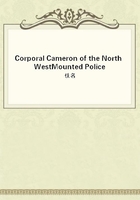
第47章
Cameron slept heavily and long into the day, but as he awoke he was conscious of a delightful exhilaration possessing him. For the first time in his life he was a free man, ungoverned and unguided.
For four dreary weeks he had waited in Montreal for answers to his enquiries concerning positions with farmers, but apparently the Canadian farmers were not attracted by the qualifications and experience Cameron had to offer. At length he had accepted the advice of Martin's uncle in Montreal, who assured him with local pride that, if he desired a position on a farm, the district of which the little city of London was the centre was the very garden of Canada. He was glad now to remember that he had declined a letter of introduction. He was now entirely on his own. Neither in this city nor in the country round about was there a soul with whom he had the remotest acquaintance. The ways of life led out from his feet, all untried, all unknown. Which he should choose he knew not, but with a thrill of exultation he thanked his stars the choosing was his own concern. A feeling of adventure was upon him, a new courage was rising in his heart. The failure that had hitherto dogged his past essays in life did not dampen his confidence, for they had been made under other auspices than his own. He had not fitted into his former positions, but they had not been of his own choosing. He would now find a place for himself and if he failed again he was prepared to accept the responsibility.
One bit of philosophy he carried with him from Mr. Denman's farewell interview--"Now, young man, rememer," that gentleman had said after he had bidden him farewell, "this world is pretty much made already; success consists in adjustment. Don't try to make your world, adjust yourself to it. Don't fight the world, serve it till you master it." Cameron determined he would study adjustments; his fighting tendency, which had brought him little success in the past, he would control.
At this point the throb of a band broke in upon his meditations and summoned him from his bed. He sprang to the window. It was circus day and the morning parade, in all its mingled and cosmopolitan glory, was slowly evolving its animated length to the strains of bands of music. There were bands on horses and bands on chariots, and at the tail of the procession a fearful and wonderful instrument bearing the euphonious and classic name of the "calliope," whose chief function seemed to be that of terrifying the farmers' horses into frantic and determined attempts to escape from these horrid alarms of the city to the peaceful haunts of their rural solitudes.
Cameron was still boy enough to hurry through his morning duties in order that he might mix with the crowd and share the perennial delights which a circus affords. The stable yard attached to his hotel was lined three deep with buggies, carriages, and lumber waggons, which had borne in the crowds of farmers from the country.
The hotel was thronged with sturdy red-faced farm lads, looking hot and uncomfortable in their unaccustomed Sunday suits, gorgeous in their rainbow ties, and rakish with their hats set at all angles upon their elaborately brushed heads. Older men, too, bearded and staid, moved with silent and self-respecting dignity through the crowds, gazing with quiet and observant eyes upon the shifting phantasmagoria that filled the circus grounds and the streets nearby. With these, too, there mingled a few of both old and young who, with bacchanalian enthusiasm, were swaggering their way through the crowds, each followed by a company of friends good-naturedly tolerant or solicitously careful.
Cameron's eyes, roving over the multitude, fell upon a little group that held his attention, the principal figure of which was a tall middle aged man with a good-natured face, adorned with a rugged grey chin whisker, who was loudly declaiming to a younger companion with a hard face and very wide awake, "My name's Tom Haley; ye can't come over me."
"Ye bet yer life they can't. Ye ain't no chicken!" exclaimed his hard-faced friend. "Say, let's liquor up once more before we go to see the elephant."
With these two followed a boy of some thirteen years, freckled faced and solemn, slim and wiry of body, who was anxiously striving to drag his father away from one of the drinking booths that dotted the circus grounds, and towards the big tent; but the father had been already a too frequent visitor at the booth to be quite amenable to his son's pleading. He, in a glorious mood of self-appreciation, kept announcing to the public generally and to his hard-faced friend in particular--"My name's Tom Haley; ye can't come over me!"
"Come on, father," pleaded Tim.
"No hurry, Timmy, me boy," said his father. "The elephants won't run away with the monkeys and the clowns can't git out of the ring."
"Oh, come on, dad, I'm sure the show's begun."
"Cheese it, young feller," said the young man, "yer dad's able to take care of himself."
"Aw, you shut yer mouth!" replied Tim fiercely. "I know what you're suckin' round for."
"Good boy, Tim," laughed his father; "ye giv' 'im one that time.
Guess we'll go. So long, Sam, if that's yer name. Ye see I've jist got ter take in this 'ere show this morning with Tim 'ere, and then we have got some groceries to git for the old woman. See there," he drew a paper from his pocket, "wouldn't dare show up without 'em, ye bet, eh, Tim! Why, it's her egg and butter money and she wants value fer it, she does. Well, so long, Sam, see ye later," and with the triumphant Tim he made for the big tent, leaving a wrathful and disappointed man behind him.